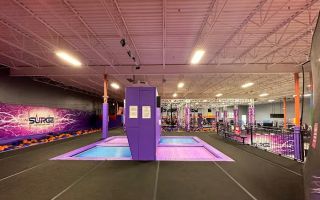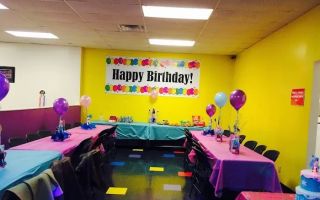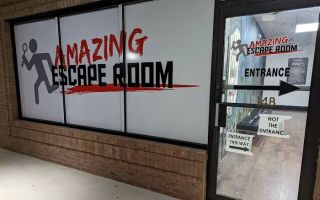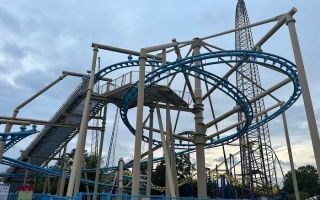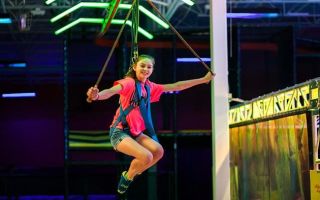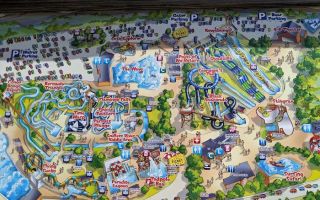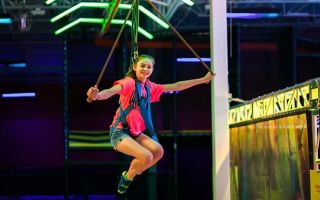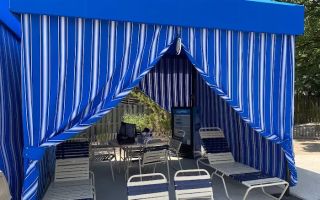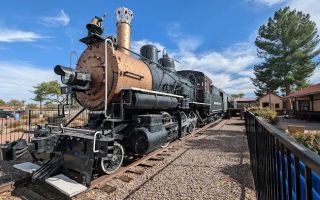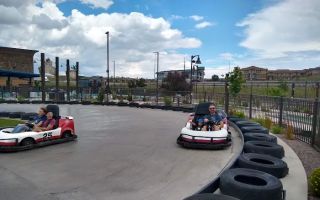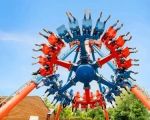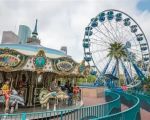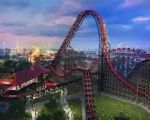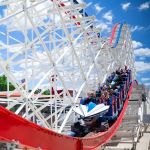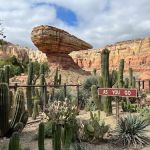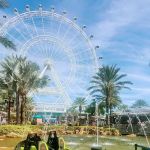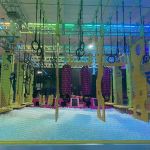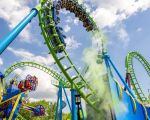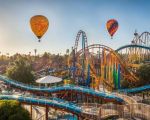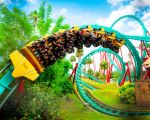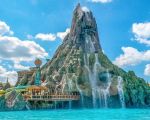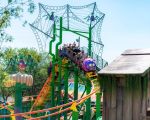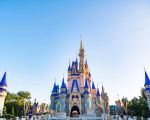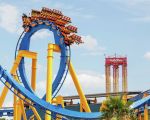Amusement Parks vs. Theme Parks: What’s the Difference?
- 1. Understanding Amusement Parks
- 2. Defining Theme Parks
- 3. Key Differences Between Amusement Parks and Theme Parks
- 4. Types of Attractions in Amusement Parks vs. Theme Parks
- 5. Target Audiences: Who Visits Amusement Parks and Theme Parks?
- 6. Cost Differences Between Amusement and Theme Parks
- 7. Which One is Right for You?
1. Understanding Amusement Parks
Amusement parks have long been a staple of family entertainment in the United States. Traditionally, an amusement park is a facility featuring a wide array of rides, games, and other attractions designed to provide fun for people of all ages. Think of places like Six Flags or Cedar Point, where the focus is primarily on the rides—roller coasters, Ferris wheels, bumper cars, and water rides. These parks are typically more general in nature, offering a variety of attractions without a specific theme linking them together.
Amusement parks are often designed with a mix of thrill rides and family-friendly attractions to appeal to a broad audience. The atmosphere in an amusement park is more relaxed compared to a theme park, as it doesn't revolve around a particular story or setting. Instead, the park's goal is simple: fun and excitement in a contained environment. It’s all about getting the most out of each ride and entertainment offering without needing to be immersed in a detailed narrative or storyline.
2. Defining Theme Parks
Theme parks, on the other hand, take a more immersive approach to entertainment. Unlike amusement parks, which focus purely on rides and attractions, theme parks center around a specific theme, story, or setting that influences the design of the entire park. Examples of theme parks include Disney World, Universal Studios, and Epcot Center. These parks create experiences that allow visitors to step into an entirely different world, where every ride, restaurant, and store is part of a greater narrative.
In a theme park, the rides and attractions are often designed to tell a story or immerse visitors in a specific environment, such as a fantasy world, a historical era, or a movie universe. For instance, at Disneyland, visitors can journey through the Star Wars universe or explore the enchanted castle of Disney princesses. The rides in theme parks are carefully designed to fit within the park’s overall story, offering a much more thematic experience compared to the more straightforward fun of an amusement park.
3. Key Differences Between Amusement Parks and Theme Parks
While both amusement parks and theme parks are designed for fun, there are distinct differences that set them apart. The most significant difference lies in the overall concept and atmosphere of each park:
- Theme: As mentioned, theme parks are based around a specific theme, while amusement parks offer a mix of attractions with no central theme.
- Immersion: Theme parks offer an immersive experience, where every aspect of the park reinforces the central theme. Amusement parks tend to focus more on the rides and entertainment without such attention to detailed storytelling or theming.
- Atmosphere: Theme parks create a more magical, fantasy-like atmosphere, whereas amusement parks are more focused on high-energy, fast-paced fun.
Both types of parks offer excitement, but the experience at a theme park is often much more elaborate and geared towards guests who want to escape reality, while an amusement park provides a fun, no-frills experience focused on the rides and attractions themselves.
4. Types of Attractions in Amusement Parks vs. Theme Parks
The attractions at amusement parks are typically designed for a broad audience and vary in terms of intensity. These parks are known for their thrilling roller coasters, bumper cars, log flumes, and carnival-style games. The rides at amusement parks are often the primary draw for visitors, and the park itself is designed around these thrilling or family-friendly activities. For example, at Cedar Point in Ohio, the emphasis is placed on intense roller coasters and other high-adrenaline rides.
In contrast, theme parks focus on attractions that serve to deepen the visitor’s immersion in the park’s theme. At Disneyland, for example, you can ride through the Pirates of the Caribbean, where the entire ride is themed around the story of pirates, with detailed sets and special effects creating an immersive experience. While there are certainly thrill rides in theme parks, the primary focus is on the experience and storytelling that each ride or show offers.
5. Target Audiences: Who Visits Amusement Parks and Theme Parks?
Both amusement parks and theme parks cater to a wide range of audiences, but there are subtle differences in who visits each type of park. Amusement parks typically attract people who are looking for a straightforward, fun, and energetic day filled with rides and games. They are often popular with teenagers and young adults who are seeking thrills, as well as families looking for an exciting, casual day out.
Theme parks, however, tend to draw visitors who are seeking a deeper, more immersive experience. Families with children, particularly those with an interest in Disney, movie franchises, or fantasy worlds, are the main target for theme parks. Theme parks also tend to attract those looking to escape reality for a few hours and be part of a larger narrative. The theming and storytelling aspect of theme parks are perfect for those who want to immerse themselves in a specific world.
6. Cost Differences Between Amusement and Theme Parks
When it comes to cost, there is often a significant difference between amusement parks and theme parks. Amusement parks generally offer more affordable admission prices, as their focus is on providing a wide variety of rides and attractions without the extensive theming or special effects that are characteristic of theme parks. Prices for a single day at an amusement park can range from $30 to $80 per person, depending on the location and the number of rides available.
On the other hand, theme parks tend to be much more expensive due to the highly immersive experience and advanced technology used to create their attractions. Tickets for popular theme parks like Disneyland or Universal Studios can easily cost over $100 per person for a single day, especially during peak seasons. However, the price is often seen as justified by the elaborate, story-driven experiences that theme parks provide.
7. Which One is Right for You?
The decision between an amusement park and a theme park largely depends on what kind of experience you're looking for. If you’re after a day filled with thrilling rides and a variety of fun activities without needing to be immersed in a specific theme, an amusement park is the way to go. Amusement parks are perfect for groups of friends or families looking to enjoy a traditional, no-frills day of excitement.
However, if you’re looking for an immersive experience with storytelling, elaborate theming, and a deep dive into fictional worlds, a theme park is likely the better choice. Theme parks are ideal for families with young children or anyone who wants to experience the magic and fantasy that these parks are known for.
No matter which type of park you choose, both offer unforgettable experiences. If you're planning your next adventure and want to explore both options, visit Hickory Dickory Dock for more amusement park tips, reviews, and ideas for your perfect getaway.

